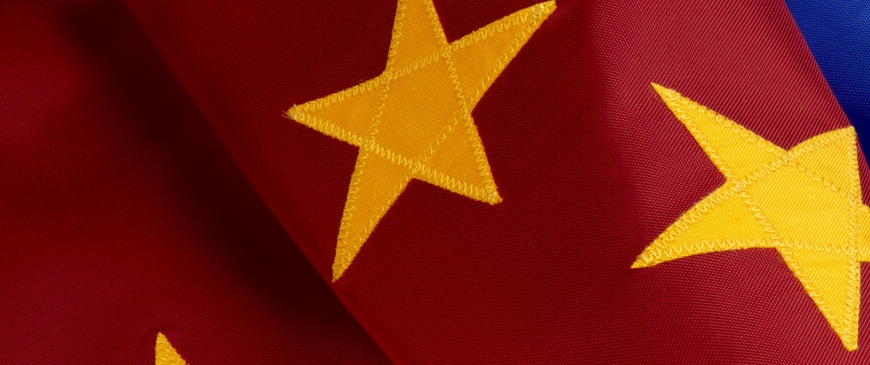
Turning East: Europe Courts Asia
The United States has long cast its shadow over the formal meetings of Asian and European ministers. "How will this play in Washington?" was the unspoken caveat to the normally unexciting conclusions of most Asian-Europe Meetings (ASEM).
The January ASEM gathering of finance ministers in Kobe, Japan, suggests that this period of deferring to the absent superpower may be drawing to a close. The fifteen EU states and ten east Asian nations - including China and Japan - gave notice that they wanted to strengthen mutual contacts. The aim is to put relations between Europe, North America and Asia on a more even footing.
Thanks largely to the rapid growth of China, trade between Europe and Asia is now broadly equivalent to that between Europe and North America. But there is an important qualitative difference. Transatlantic trading relations are underpinned by long-established inter-governmental contacts and large bilateral flows of direct investment. In contrast, the dialogue between Europe and Asia, whether political, commercial or cultural, is still in its infancy. In the post-colonial era, Europe has had little direct stake in the region. In Asia, the EU attitude has been summed up as "arrogance, agriculture and anti-dumping".
The presence of 25 finance ministers from both regions at Kobe highlighted the renewed seriousness of this relationship, both as an engine of growth in the world economy and as part of a broader move towards closer co-operation on global issues. Delegates on all sides were able to hail the recent recovery of the euro on the currency markets. Europeans present this as overdue recognition of their sound economic fundamentals and moves to structural reform. Asian ministers are simply relieved that their earlier large investments in the new currency have not been entirely misplaced.
Both sides share the view that the euro could and should take its place as a major reserve currency to balance the hegemony of the US dollar. In a partnership that would until recently have been implausible, a joint Franco-Japanese initiative has proposed a managed exchange rate regime for the volatile emerging markets of East Asia. Such ideas have been anathema to the free-marketeers of Washington who contend that currencies should either float freely or be rigidly pegged to the dollar. The arrival at the IMF of Horst Köhler, however, formerly at the German Finance Ministry and an architect of EMU, may mark a change in philosophy. Indeed, Herr Köhler spoke sympathetically at Kobe about the need for countries to develop exchange rate regimes suitable to their circumstances.
In the face of open US criticism, a number of Asian countries last year established a regional currency swap regime among their central banks. The region's finance ministers are now keen to undertake further technical co-operation with their European counterparts on currency issues. There is no immediate prospect of a single Asian currency, but the idea is discussed openly by finance ministers and their advisors as a means of bolstering intra-regional trade and the ever-elusive "Asian identity". In an interesting reversal of the European experience, it is conceivable that Asia may push ahead with some form of currency union before the political will exists to establish a comprehensive single market.
Apart from the economic "pillar", ASEM institutions now also cover political and cultural exchanges. There is talk of developing a dialogue on human rights related issues. However, sensitivities in these areas will be particularly acute now that China and Vietnam have taken over as Asian co-ordinators on the key ASEM Committees. A new European Commission strategy paper on relations with Asia, which is expected in July, will take a long, hard look at these issues.
There is a clear opportunity for Europe to develop a new partnership with the region, but it will require delicate handling. The ongoing economic problems in Japan deprive Asia of a potential leader. There are some clear tensions between the more integrationist members of ASEAN and the more rigidly inter-governmental approach adopted by North East Asian countries. Exasperated Americans often ask "Who speaks for Asia?" The Europeans, with their lengthy experience of managing the competing agendas of geographically close but politically divergent countries, have much to offer.
